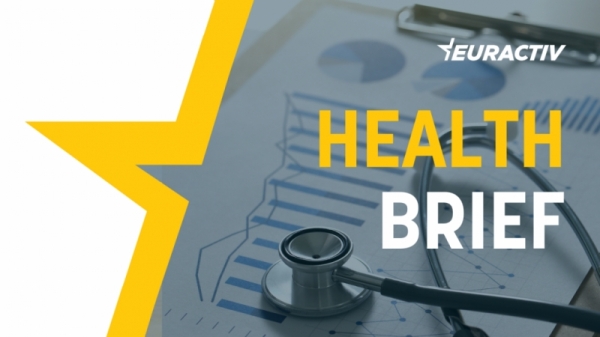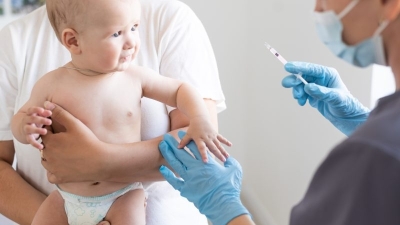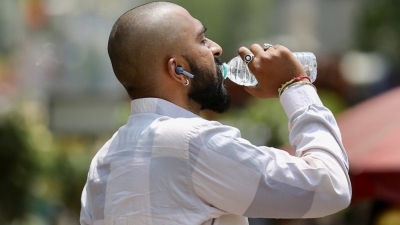One ‘unacceptable’ maternal death every two minutes

Since 2015 there has been a setback in reducing maternal deaths worldwide. While things are stagnating globally, some European countries, most notably Greece and Cyprus, are seeing an increase.
A report by United Nations (UN) agencies published last week (23 February) ‘Trends in maternal mortality’, revealed alarming setbacks for women’s health over recent years, as maternal deaths either increased or stagnated in nearly all regions of the world.
Between 2000 and 2015, there was significant progress in reducing maternal deaths but after this point, progress largely stalled or, in some cases, was even reversed.
In 2020, there were an estimated 287,000 maternal deaths worldwide, which translates into almost 800 deaths a day or one death every two minutes.
“This is unacceptable,” Jenny Cresswell, scientist and epidemiologist at the World Health Organisation (WHO) and author of the report, told a press briefing.
Worryingly, nearly all of these maternal deaths are due to preventable causes. “This is something we are very concerned about,” Cresswell stressed.
The death of a mother has an impact on the newborn and increases the risk of the newborn dying as well.
Furthermore, the report also found, for every woman who dies, between 15 to 30 women suffer a disability caused by pregnancy and childbirth-related complications, which can be serious lifelong complications that compromise productivity or quality of life.
Anshu Banerjee, assistant director general at Universal Health Coverage and the Life-course at WHO, highlighted that some 270 million women globally lack access to modern family planning methods as nearly half of all pregnancies are unintended.
“They’re unable to choose how and when to plan their families,” he stressed.
Family planning methods are just one side of the issue. Many women lack access to safe abortion, which increases the risk of complications, including deaths associated with unsafe procedures.
Finally, roughly a third of women globally do not have four of the recommended eight antenatal checks or do not receive essential postnatal care in the days and weeks after birth.
The European landscape
Within Europe, some countries have seen declines in maternal mortality but a number of countries have experienced increases.
The two countries in Europe region, which have seen statistically significant increases in maternal mortality of Greece and Cyprus. Despite the increase, both of these countries still have very low levels of maternal mortality.
For example, in Greece, in the year 2000, their maternal mortality ratio was four maternal deaths per 100,000, while in 2020, it was eight. These numbers are still relatively low when looking at the global picture, but researchers are calling for the trend to be reversed.
“Obviously, it is unacceptable that any woman is dying from a maternal death, and it is something which needs to be given a lot of attention to ensure that we can reverse this trend,” Cresswell said.
All about inequalities
The report also pointed out the inequalities seen globally both between and within countries when it comes to access to high-quality and respectful care, as well as sexual and reproductive rights and women’s autonomy.
“Globally, we see very substantial inequities between richer countries and poor countries and for subgroups within countries depend on characteristics and access to care,” Cresswell said.
The differences are striking: The number of maternal deaths per 100,000 live births in Sub-Saharan Africa in 2020 was estimated to be 545. This number is 136 times bigger than in Australia and New Zealand.
Europe and Northern America, Latin America, and the Caribbean are the regions where the maternal mortality rate increased from 2016 to 2020 by around 15%.
“Although in many of these countries, the absolute level of maternal mortality is low. This is the relative increase from a relatively low but absolute base,” Cresswell said.
She explained that the increase can be attributed ‘as a rule of thumb’ to access to quality, timely services, particularly around the time of delivery.
This can create obstacles to accessing quality care, either for the whole population or for subgroups within a population, and can lead to increased maternal mortality rates. Access to social security or health insurance, economic position, structural barriers and racial inequities all might have a role here.
“The reasons are complex, but the ultimate concern is lack of timely access to quality and perspective services,” Cresswell said.
Worldwide, the general trend is one of stagnation, with the exception of Australia and New Zealand, as well as Central and Southern Asia, which experienced significant declines in maternal mortality rates during the same period.
Rare disease action plan for EU. A group of more than 40 EU lawmakers backed the idea of an EU action plan for rare diseases, in a letter addressed to European Commission President Ursula von der Leyen and seen by EURACTIV.
In Vitro diagnostics. The second annual MedTech Europe survey of the IVD sector and the state of the transition to the IVD Regulation published on Tuesday (28 February) found that to ensure a successful transition, several issues still need to be addressed. That includes access to a notified body, especially for small and medium-sized enterprises, over half of which do not yet have a contract with a notified body. Another issue remains the excessive variation of conformity assessment timelines. Last but not least, ongoing regulatory uncertainty is harming innovation: the survey shows a 28% drop in manufacturers who would prioritise the EU for first product launches compared to one year ago. Stressing the importance of IVD tests Oliver Bisazza, CEO of MedTech Europe, said: “To ensure that everyone in Europe continues to have seamless access to a sufficient variety of IVD medical tests, the EU regulatory infrastructure needed to lawfully bring such tests to market must run smoothly.”
Unwanted sexual attention toward healthcare workers. Health professionals in the EU are 3 times more likely to report unwanted sexual attention, according to the latest data published on Wednesday (1 March) by Eurofound, the tripartite European Union Agency, whose role is to provide knowledge in the area of social and work-related policies. Likewise, healthcare and protective services workers are 2-3 times more likely to report bullying, harassment, and violence.
Affordability of healthcare in Belgium. On Tuesday (28 February) WHO published a report: “Can people afford to pay for health care in Belgium?” that found that during the period from 2012 to 2020, catastrophic spending was heavily concentrated among poor households. On a bright note, the share of households in the poorest quintile among households with catastrophic spending has fallen from two-thirds in 2012 to just under half in 2018 and 2020. The main drivers of catastrophic spending are medical products, diagnostic tests and dental care. When it comes to unmet medical needs in Belgium, they are similar to the EU average but there is still a significant gap between the richest and poorest people. “Although fewer people now live in households with very low working intensity, this group has become more vulnerable and increasingly faces health problems,” the report said.
Scientific advice for medical devices. On Monday (27 February) the European Medicines Agency launched a pilot to give scientific advice for certain high-risk medical devices (all class III devices and class IIb active devices intended to administer and/or remove medicinal product(s)). Manufacturers can submit their letter of interest to be part of the pilot on scientific advice which will be provided by the medical device expert panels. The expert panels will provide free advice to ten selected applicants on their clinical development strategy and/or proposals for clinical investigation, EMA said in their press release.
A call to end the persecution of Doctors Türkiye. In a letter issued on Monday (27 February) four international medical and human rights organisations called on Turkish authorities to drop the “baseless” charges against the leadership of the Turkish Medical Association (TMA) at a time when doctors are urgently needed to tend to victims of the 6 February earthquake that have caused over 45,000 deaths in Türkiye and Syria. In addition, European doctors have joined global and European medical associations to publish a statement calling for the autonomy of the Turkish Medical Association to be safeguarded.
Step forward for International health regulations. On Saturday (25 February), governments agreed on a way forward to update international health regulations ahead of meetings to draft new global guidelines for tackling pandemics, the World Health Organization (WHO) said. Governments agreed on a way forward for updating the WHO International Health Regulations 2005 (IHR), holding the first round of intensive discussions on more than 300 amendments proposed by countries to this globally agreed instrument.
PARIS
Macron approves vaccination campaign against HPV in middle schools. The launch of a generalised vaccination campaign against human papillomavirus (HPV) in middle schools from 5th grade will start in September, President Emmanuel Macron announced on Tuesday. By Clara Bauer-Babef | EURACTIV.fr
PRAGUE
Roma people still face discrimination in Czechia. Roma communities in the Czech Republic face discrimination in many areas, Council of Europe Commissioner for Human Rights Dunja Mijatović said after her visit to the country on Monday. By Aneta Zachová | EURACTIV.cz
MADRID
Biosimilar prices in Spain. Leading representatives of the generic and biosimilar pharmaceutical industry in Spain have alerted authorities of the damage they are suffering due to the low prices of their drugs. By Fernando Heller | EuroEFE.EURACTIV.es
2 March – EU Council’s Working Party on Public Health
3 March – World Hearing Day 2023
6-17 March – WHO 67th session of the Commission on the status of women
6-7 March – High-level meeting on antimicrobial resistance (AMR)
6 March – EU Council’s Working Party on Public Health
7 March – Towards a European Health Union and European Global Health Strategy fully inclusive of persons with disabilities
7 March – EU Council’s Working Party on Public Health
7-10 March – WHO Postpartum Haemorrhage Summit
8 March – Hidden in plain sight: the increasing burden of noncommunicable diseases among refugees and migrants organised by the WHO



